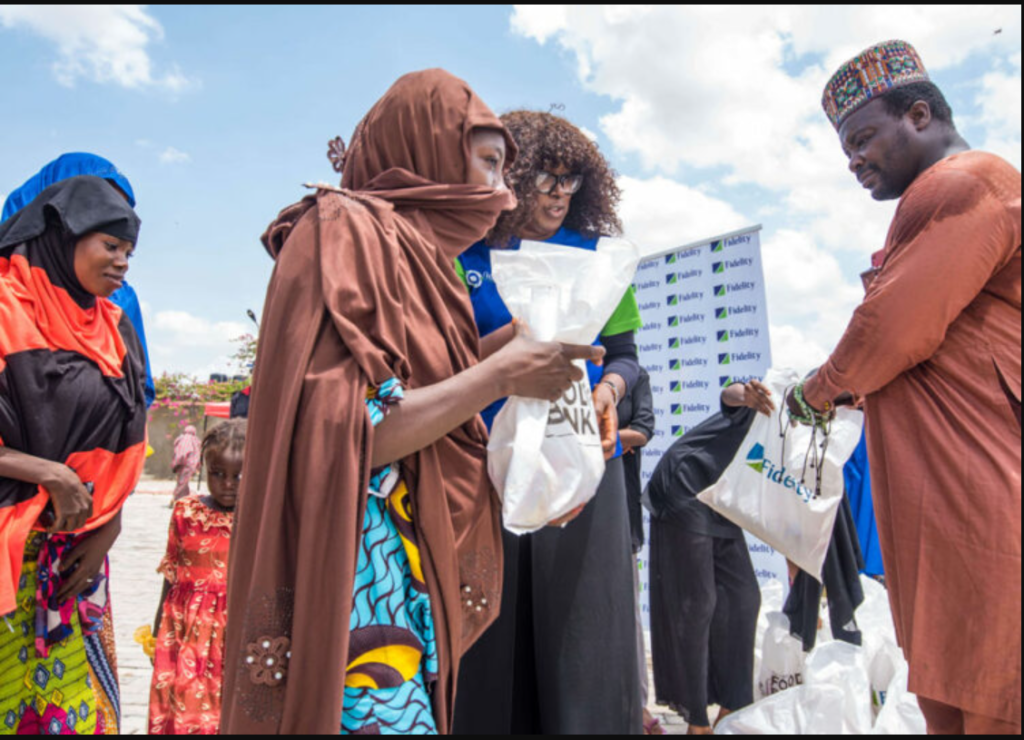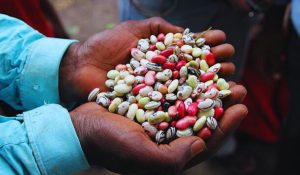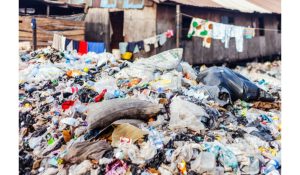
Emulate Fidelity Bank's Feeding Programme – CSR REPORTERS to corporates in Nigeria
Corporate Social Responsibility (CSR) has evolved from being a buzzword into an integral part of modern business strategy, serving as a powerful tool to align business objectives with societal good. Beyond profit-making, CSR emphasizes a corporation’s duty to contribute positively to the communities in which it operates. The essence of CSR lies in addressing societal challenges like poverty, hunger, inequality, and environmental degradation. This responsibility is particularly crucial in developing nations like Nigeria, where vulnerable populations face numerous hardships.
CSR initiatives can take many forms—ranging from educational programs, healthcare initiatives, and environmental sustainability efforts to poverty alleviation schemes. Companies that embrace CSR foster goodwill and strengthen their reputations, demonstrating that their success is not only measured by profits but by their tangible contributions to society. In Nigeria, Fidelity Bank has demonstrated an exemplary commitment to CSR through its innovative “Fidelity Food Bank” program, which is making significant strides in tackling hunger and poverty.
CSR REPORTERS, the organisers of the fast-approaching Social Impact and Sustainability Awards (SISA) and the premier Nigerian CSR/sustainability news, advocacy and consultancy platform, notes that Fidelity Bank PLC, a prominent player in Nigeria’s banking sector, recently reaffirmed its dedication to alleviating food insecurity through the distribution of food packs to residents of Eti-Osa Local Government Area (LGA) in Lagos. This initiative, spearheaded by the bank’s Managing Director, Dr. Nneka Onyeali-Ikpe, under the Fidelity Food Bank CSR program, is focused on bolstering food distribution and enhancing the economic resilience of vulnerable communities across Nigeria. The program underscores the bank’s broader mission to positively impact the lives of individuals, especially those in need.
Fidelity Bank’s initiative is noteworthy not only for its scale—reaching across all 36 states of Nigeria—but also for its collaborative approach. The bank partners with faith-based institutions and charitable organizations to ensure that food packs are distributed monthly to the most vulnerable communities. This consistency and reach reflect the bank’s long-term commitment to tackling food insecurity, a growing crisis exacerbated by economic challenges and rising inflation.
As Dr. Onyeali-Ikpe highlighted, the Fidelity Food Bank is more than just a relief program—it is a strategic response to a national crisis. With hunger affecting millions of Nigerians, the bank’s program is a direct intervention to alleviate poverty and improve food security. This approach not only addresses immediate needs but also lays the foundation for more sustainable community development by promoting economic resilience among Nigeria’s most vulnerable populations.
The bank’s CSR efforts are a testament to the transformative power of corporate involvement in addressing societal challenges. Beyond hunger alleviation, Fidelity Bank has been recognized for its broader contributions to community welfare, including consistently ensuring that Automated Teller Machines (ATMs) in local communities are well-stocked with cash—a seemingly small but impactful gesture that ensures access to essential financial services.
Fidelity Bank’s success in implementing such a far-reaching and impactful CSR program sets a benchmark for other corporate organizations in Nigeria. It demonstrates that large-scale corporate interventions can significantly contribute to improving the well-being of underserved communities. The impact of these initiatives goes beyond fulfilling a company’s CSR obligations—it actively contributes to national development and supports government efforts to combat social challenges.
Other corporates should take a cue from Fidelity Bank’s example and integrate food security and poverty alleviation into their CSR strategies. With Nigeria facing heightened food insecurity due to inflation, economic instability, and the lingering effects of the COVID-19 pandemic, the private sector must play a more proactive role in addressing these critical issues. By pooling resources and creating synergies with charitable organizations, faith-based institutions, and local governments, businesses can expand their reach and deepen their impact.
Corporate organizations that invest in CSR programs, particularly in areas like food security, are not only helping to stabilize communities but also strengthening the economy. Healthy, well-fed populations are more productive, resilient, and capable of contributing to economic growth. Additionally, CSR initiatives like Fidelity’s foster goodwill, enhance a company’s reputation, and deepen customer loyalty, thus offering long-term benefits for both businesses and society.
Honestly, Fidelity Bank’s exemplary food distribution initiative serves as a model of how corporations can effectively use their resources to address societal challenges, particularly hunger and poverty. Other organizations should replicate such efforts, recognizing that corporate responsibility goes hand-in-hand with national development. By embracing robust CSR strategies focused on sustainable community support, businesses can contribute meaningfully to alleviating hunger, improving food security, and reducing poverty across Nigeria.










certainly like your website but you need to take a look at the spelling on quite a few of your posts Many of them are rife with spelling problems and I find it very troublesome to inform the reality nevertheless I will definitely come back again